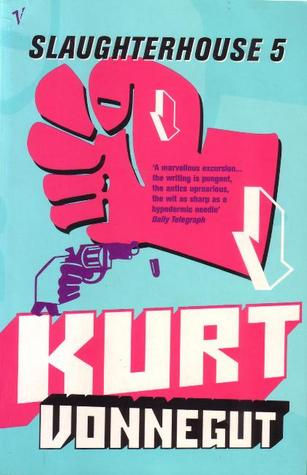Slaughterhouse 5 - Kurt Vonnegut (Delacorte 1969)
- Calvin Kean
- Jan 17, 2017
- 2 min read
All this happened, more or less.

With deadpan humour and absurd style Vonnegut chronicles the lead up to the bombing of Dresden from the innocent perspective of young protagonist and optometrist, Billy Pilgrim, who has become unstuck in time. Flailing between past, present and future, Billy struggles - as a victim of cosmic circumstance - to grasp reality, bumbling innocently through World War II while narrowly avoiding death and destruction, and crushing every heroic cliché of war. With predestined fortune (from the author’s pen) Billy survives the ordeal and outlives his far better-equipped comrades: a testament to the senseless nature and brutality of war. Yet, no man escapes war unscathed and, while Billy’s skinny frame manages to dodge bullets and bombs, his mind is engulfed by the horrors of combat. Vonnegut’s own experiences permeate the story and shock the reader in the cool descriptions of devastation. The apparent absence of feeling in Billy’s reactions to these morbid images reveals the emotional wall he has built around himself, and his inability to come to terms with such ruin. His surname, Pilgrim, alludes to his spiritual journey through the war, during which he embraces an alien way of thinking and living. A warped sci-fi mutation of shell shock manifests itself in the aliens from Tralfamadore who prescribe to Billy his one true lens of life and reveal the concept of predestination as a reality. Understanding life has no reins, and moves with uncompromising motion along a set track, gives him a perverted comfort: he simply accepts the pain and suffering of war as an inevitability he cannot change. He becomes detached from his civilian life in the flashbacks/forwards and tragically no longer recognises his son.
Billy is like an innocent child, in name and personality, and never sees the full impact the war has on him. Sight is an integral theme of the novel and it’s with bitter irony that Billy Pilgrim, the optometrist, becomes blind to the world surrounding him and so conjures a synthetic one with alien zoos and a flawless human actress who agrees to carry his baby. Moreover, the flitting back and forth between different temporal points in his life is indicative of his inability to live in the present after the trauma of the Dresden firebombing, and leads to him construct a far-fetched theory about aliens to explain it.
Vonnegut’s genre is unconventional and his style distinct. He likes to ‘break the fourth wall’ and does so throughout this novel, showing how personal the text is to him, but also creating a link between Billy and the reader’s world to highlight the reality of his inner conflict. He punctuates his novel with an assortment of recurring quotations; for example, any mention of death is followed by “so it goes” (a Tralfamadorian proverb about accepting fate since there is nothing to be done). Its frequent recurrence reminds the reader of the sheer number of casualties of war, and reinforces the idea of mortality. So it goes














Comments